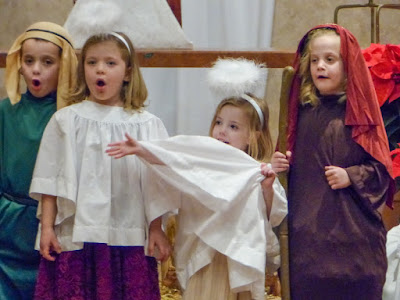John 1:1-18 In the beginning was the Word, and the Word was with God, and the Word was God. He was in the beginning with God. All things came into being through him, and without him not one thing came into being. What has come into being in him was life, and the life was the light of all people. The light shines in the darkness, and the darkness did not overcome it.
There was a man sent from God, whose name was John. He came as a witness to testify to the light, so that all might believe through him. He himself was not the light, but he came to testify to the light. The true light, which enlightens everyone, was coming into the world. He was in the world, and the world came into being through him; yet the world did not know him. He came to what was his own, and his own people did not accept him. But to all who received him, who believed in his name, he gave power to become children of God, who were born, not of blood or of the will of the flesh or of the will of man, but of God.
And the Word became flesh and lived among us, and we have seen his glory, the glory as of a father's only son, full of grace and truth. (John testified to him and cried out, "This was he of whom I said, 'He who comes after me ranks ahead of me because he was before me.'") From his fullness we have all received, grace upon grace. The law indeed was given through Moses; grace and truth came through Jesus Christ. No one has ever seen God. It is God the only Son, who is close to the Father's heart, who has made him known.
Reflection “In the beginning was the Word, and the Word was with God and the Word was God.” This prophetic sentence means more than God is with us. It even means more than God is within us. It also means that every one of us participates in the creating power of God - the Word. The power of the word is real and the power is delivered as we choose to use our words.
More than once I have longed to edit - delete the words that leaped out of my mouth. More than once I have intended to “Say something nice,” only to hear myself deliver daggers. Words are a powerful force uniquely available to humankind. When we choose to use our words like daggers or darts they deliver harm, humiliation, killing energy. When we choose to use our words as blessing and absolution they deliver benefit, mercy and life. Words can kill and words can create.
As people of God imbued with the power of words we must ask ourselves, “How will we use our words to add light to a world full of broken hearts and crushed dreams? How will we use our words to offer comfort, encouragement, support and healing to a world full of disease and violence, fear and marginalization? Will we allow the Word God to inspire us to penetrate the darkness? to articulate God’s delight in creation? to give voice to the promise of peace and new life to friends and neighbors and strangers? How will we use our words to continue God’s life-giving power in our world today?
As we face the travail of volatile stock markets, wars, rumors of war, blue explosions, shuttered government, uncivil unrest, elusive ethics with the accompanying anguish, gloom and despondency, the questions is, “Do we have the courage to use our words to create rather than destroy? Do we have the audacity to use our words to promote God’s promise of light and life and love for all people?
If you found this post to be meaningful please share by clicking on icons below. Thank you.












